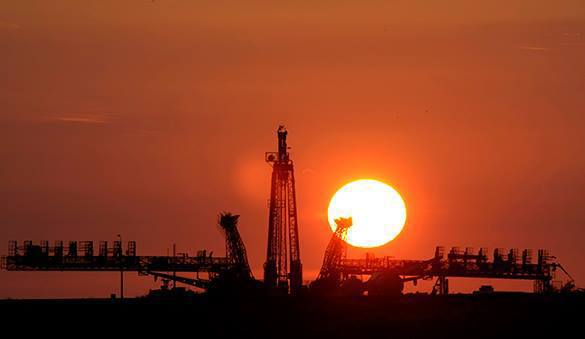It is about time Russia should end International Space Station project
The 20th century was rich for events in the field of space exploration. First manned space flight of Soviet cosmonaut Yuri Gagarin's and US astronaut Neil Armstrong's landing on the Moon became one of he biggest achievements of mankind in conquering space. What can humans achieve in space exploration in the 21st century? Pravda.Ru conducted an interview on the subject with correspondent member of the Russian Academy of Cosmonautics named after Tsiolkovsky, Andrei Ionin.

"Do you think that such projects as Russia's Vostochny spaceport can interest foreign investors from Asian countries?"
"Of course. Most countries of the world are very interested in the space industry. Space is a medal that anyone wants to decorate themselves with, in spite of everything. If a country develops its own space industry, it means that this country is a technologically advanced state with a developed national economy. Although, with all due respect to the space industry, it is no longer the case. Space industry is not the most advanced sector of national economy. The world has not seen any innovations in the industry for about 40 years already.
"Yet, it is still considered very prestigious. Space industry is a serious motivator for science and young people. People are very attracted to ideas of the future. Space industry is all about future. Therefore, many countries want to develop their own space programs, while other countries want to participate in other countries' space programs.
ISS brings no more profit to Russia
"However, a year ago, Dmitry Rogozin put forward a reasonable suggestion to close the International Space Station project. Russia has been developing the project for 20 years already. It started during the 1990s in cooperation with the USA, the EU, Canada and Japan.
"Russia's role in the project was different from the start. During the 1990s, it was having very hard times, and the money that was invested in the ISS project rescued the Russian space industry. The United States and the European Union participated in the project because they did not have the technology of long-term stay in space. The USSR and then Russia had the technology that the USA and the EU wanted to have as well.
"Today, it is clear for Russia that our current partners on the ISS project will not be our partners in the future. It is about time Russia should end the project - it does not bring any profit anyway. There is no motivation to continue the ISS project.
"Yet, one should develop the field of manned space exploration. This is a very costly field of the industry that requires the participation of partners."
"Well, if we finish co-operation with G7 partners in space, in which form would it be advisable to start cooperation with other partners?"
Mankind needs large-scale space project
"One needs a large-scale project for this - a lunar or a Martian one that would attract attention inside the country. At the same time, a large project is a costly project, so one would need to attract partners to be able to run it. A flight to Mars would be a very good option to proceed with. Remember what Neil Armstrong said when he stepped on the Moon? ''That's one small step for mankind, one giant leap for mankind," he said. He perceived himself as a representative of humanity, didn't he? If there is another big project like that - a flight to the Moon, an asteroid or to Mars, then we should develop this project as mankind. BRICS countries are home to four billion people. Think about this number vs. less than a billion of G7. Therefore, one can say that a project that BRICS countries implement is a project of mankind. We can attract BRICS members as our partners and say that we are flying into space as mankind. The United States will not fly either to the Moon or to Mars."
"Why not?"
"Even the United States will not be able to take up such a project alone. If this project requires partners, then I find it hard to imagine that there is a country that can come to an American project and spend billions of dollars every year on it. For Americans, it is hard to declare that they can have a project of mankind, because the Americans say that they are an exceptional nation. In other words, there is mankind and there is an exceptional nation."
"Does Russia have a leading position in the field of space exploration? Is there anything that Americans or any other nation can not do without Russia in space?"
"Before the ISS project started, the Americans were practically nobody in the field of manned spaceflights. Nowadays, Russia and the USA are about on the same level with it comes to space technology, spaceflight training and long-term staying in space. As for satellites, Russia is way too far behind the United States now. Yet, Russia has excellent rockets that no one else in the world can make. Russia also has very good rocket engines. It would take the Americans a decade and billions of dollars to develop such engines, so they buy them from Russia."
Interview conducted by Leyla Mamedova
Pravda.Ru
Read article on the Russian version of Pravda.Ru
Also read: Russia will send cosmonauts to the Moon this decade
R-16 explosion: Biggest disaster in Soviet rocket technology
International Cooperation in Space Is Impossible
Subscribe to Pravda.Ru Telegram channel, Facebook, RSS!





